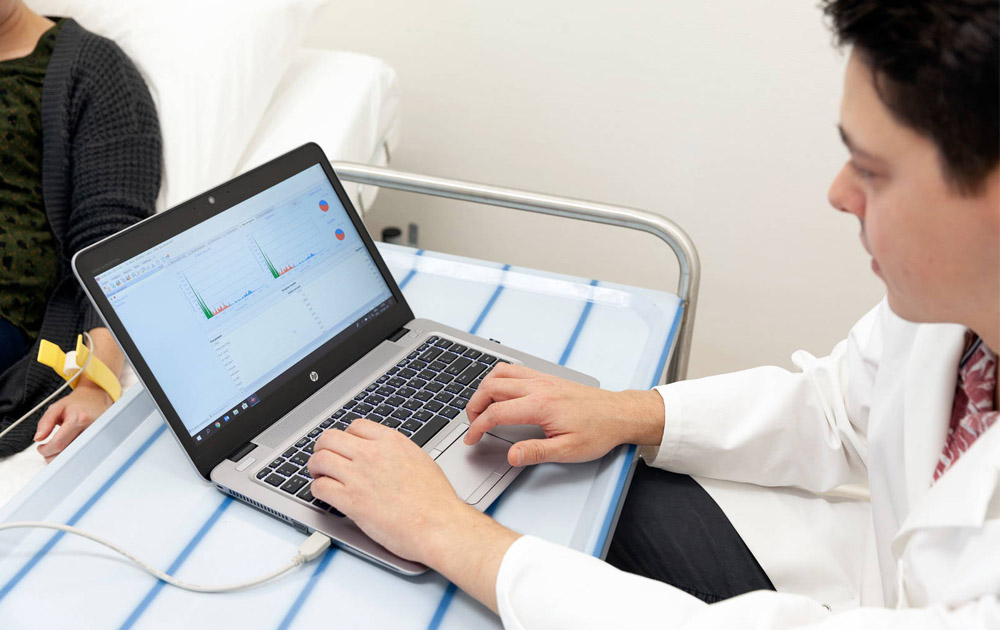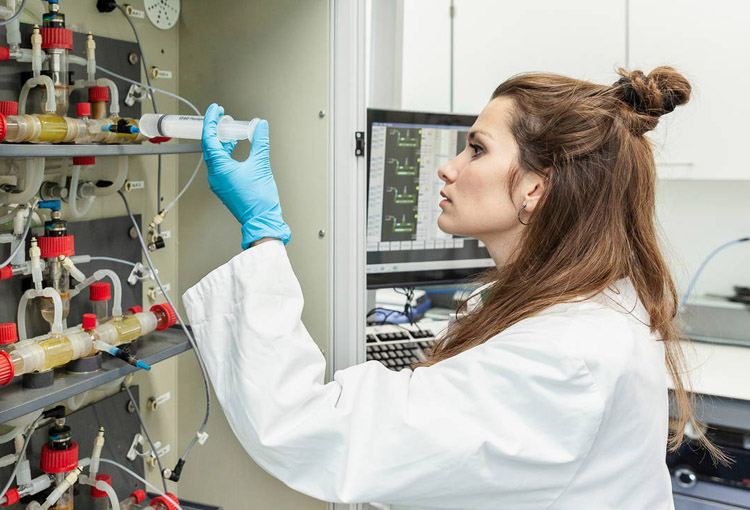Research
The corona crisis had a major impact on research at UM. Research involving human subjects was halted and many academics struggled with additional (online) teaching tasks, care tasks and limited facilities for working from home. PhD candidates and postdocs (often young academics with temporary contracts) were disproportionately affected.
Key measures to minimise the impact on research:
- The last normal PhD defence took place on 20 March, after which all academic ceremonies (PhD defences, inaugural addresses and valedictory lectures) were cancelled. As of 8 April, PhD defences could be held online in compliance with a new protocol. PhD candidates could choose themselves whether to defend their PhD online or postpone the ceremony until further notice. Up to and including the summer, 66 PhD candidates made use of the online option, with the PhD candidate, doctoral committee and beadle participating in a Zoom session that the public could follow via livestream.
- After the government’s relaxation of the lockdown measures, in late May a number of UM buildings were reopened to a limited extent for small numbers of employees, in particular laboratory researchers and their support staff. A startup protocol was drafted for Randwyck, paying special attention to the research facilities. In granting admission, priority was given to researchers on temporary contracts.
- The Executive Board, in cooperation with the faculties, has launched a €7 million investment programme to address the increase in workload. The programme includes a compensation scheme for PhD candidates and postdocs whose research has been irrevocably delayed by the corona situation. These individuals will be offered tailored solutions to complete their research as far as possible in view of the available time and resources. Those who cannot make up for the delay in any other way may apply for additional research months.
- Various grant providers postponed the deadlines for grant applications. In addition, national (e.g. NWO and ZonMw) and international (e.g. European Commission) grant providers issued special calls offering funding for coronavirus research. A number of UM scientists successfully applied for research funding through these calls.
- Because Zoom, LifeSize and other digital tools are not always secure enough for research involving sensitive data, SURF Videobellen was developed as a secure alternative. SURF is the collaborative organisation for ICT in Dutch education and research. This service meets the GDPR requirements for the processing of highly sensitive data.
Looking forward
In the new academic year, PhD candidates will have the option of defending their PhDs either online or at the university, in accordance with the official corona measures. The postponed inaugural and valedictory lectures will be rescheduled. Within the limitations of the above measures, we are confident that research will be able to continue and research projects can be completed as far as possible. The implementation of the regulations, guidelines and protocols is being closely monitored.
With a lot of quick thinking and ad-hoc solutions, the university has been able to limit the consequences of the corona crisis for most research and researchers. This does not alter the fact that many employees have had to deal with disappointments: PhD defences that lacked the usual pomp and ceremony, a lack of input from fellow researchers, the subordination of research activities to necessary teaching tasks and so on.

